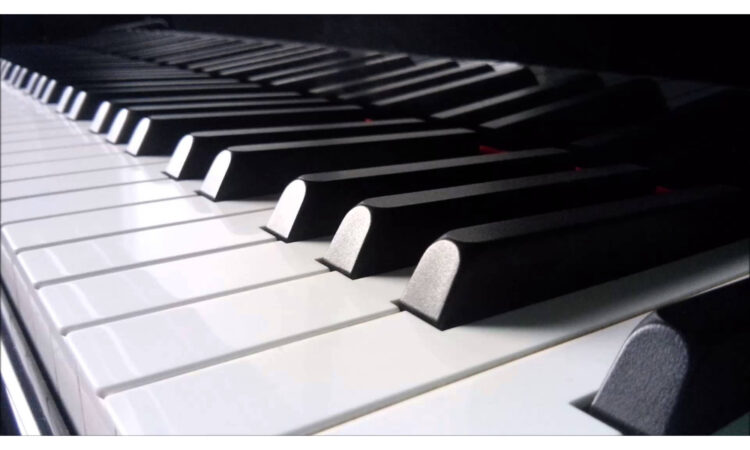
The keyboard is one of the most versatile instruments, used in everything from classical music to jazz, rock, and electronic compositions. Whether you dream of performing on stage, composing your own music, or working as a session musician, mastering certain foundational skills is key to success. Below are seven essential skills every aspiring keyboardist should develop to enhance their technique, creativity, and overall musicianship.
1. Finger Independence and Dexterity
One of the first technical hurdles for keyboard players is developing finger independence. Unlike some instruments that rely heavily on one hand, keyboardists must be able to move their fingers fluidly and independently on both hands.
Practicing five-finger exercises, Hanon drills, and scales can improve dexterity and control. Start slow, focusing on evenness in sound, and gradually increase speed. Training each hand separately and then combining them ensures stronger coordination, making complex passages easier to execute.
2. Chord Knowledge and Voicings
Understanding chords is fundamental to playing the keyboard effectively. Beyond just memorizing major and minor chords, aspiring musicians should explore seventh chords, diminished chords, and inversions to add variety to their playing.
Chord voicings—how the notes are arranged within a chord—play a crucial role in musical expression. Learning spread voicings, rootless voicings, and close voicings allows players to achieve richer harmonies and create more professional-sounding progressions.
3. Sight-Reading Proficiency
Sight-reading is an invaluable skill, especially for those who want to play professionally. It allows musicians to quickly learn new pieces and adapt to different musical styles. To improve sight-reading, focus on:
- Recognizing patterns rather than reading note by note.
- Practicing with different key signatures and rhythms to expand familiarity.
- Using a metronome to maintain a steady tempo while reading.
The ability to sight-read well makes collaborating with other musicians easier and more efficient, whether in a band, orchestra, or recording session.
4. Rhythm and Timing Mastery
Even the most skilled keyboardists can struggle without strong rhythmic accuracy. A great sense of timing allows musicians to groove naturally with other players and keep the music tight.
Some ways to develop better rhythm include:
- Practicing with a metronome to internalize different tempos.
- Learning different time signatures, such as 3/4, 6/8, and odd meters like 7/8.
- Playing along with drum tracks or backing tracks to simulate real-world playing scenarios.
Mastering rhythm enhances a keyboardist’s ability to play different styles, from complex jazz syncopations to steady rock and pop grooves.
5. Improvisation and Ear Training
Keyboardists who can improvise and play by ear have a distinct advantage in both live and studio settings. Being able to hear a song and reproduce it without sheet music allows for greater creativity and flexibility.
To improve in this area:
- Practice playing melodies by ear rather than relying on notation.
- Transcribe solos from famous keyboardists to understand phrasing and technique.
- Experiment with chord progressions and create variations to develop improvisational fluency.
Improvisation is especially important in jazz, blues, and contemporary music, where keyboardists are often expected to adapt in real time.
6. Understanding Music Theory
While playing by ear is valuable, a solid foundation in music theory enhances a musician’s ability to analyze and compose music. Understanding scales, modes, harmonic progressions, and intervals can help keyboardists make informed musical decisions.
For example:
- Knowing modal theory allows musicians to create different moods and textures.
- Studying voice leading helps create smooth transitions between chords.
- Learning about key modulations enables seamless shifts between different tonalities.
A strong grasp of theory can also make learning new pieces much faster, as musicians can recognize common patterns and progressions instead of processing each note individually.
7. Adaptability to Different Genres
One of the greatest strengths of the keyboard is its ability to fit into multiple genres. A well-rounded keyboardist should be comfortable playing classical, jazz, rock, pop, gospel, funk, and electronic music. Each genre has unique playing techniques, and exploring different styles will expand a musician’s versatility.
For example:
- Jazz requires knowledge of extended chords and improvisation.
- Classical playing emphasizes precision, phrasing, and dynamics.
- Funk and R&B focus on rhythmic playing and syncopation.
Enrolling in an online keyboard degree program can provide structured training across multiple genres, helping musicians develop the necessary skills for diverse performance opportunities.
Mastering the keyboard takes dedication, but developing these seven skills will provide a strong foundation for any aspiring musician. From finger independence and chord knowledge to improvisation and music theory, each skill contributes to becoming a more confident and capable player. The ability to sight-read, maintain solid rhythm, and adapt to various genres makes a keyboardist highly valuable in any musical setting.
By committing to consistent practice and seeking structured learning opportunities, musicians can refine their craft and open doors to exciting musical possibilities. Whether performing solo, collaborating with a band, or composing original music, these essential skills will set any keyboardist on the path to success.




